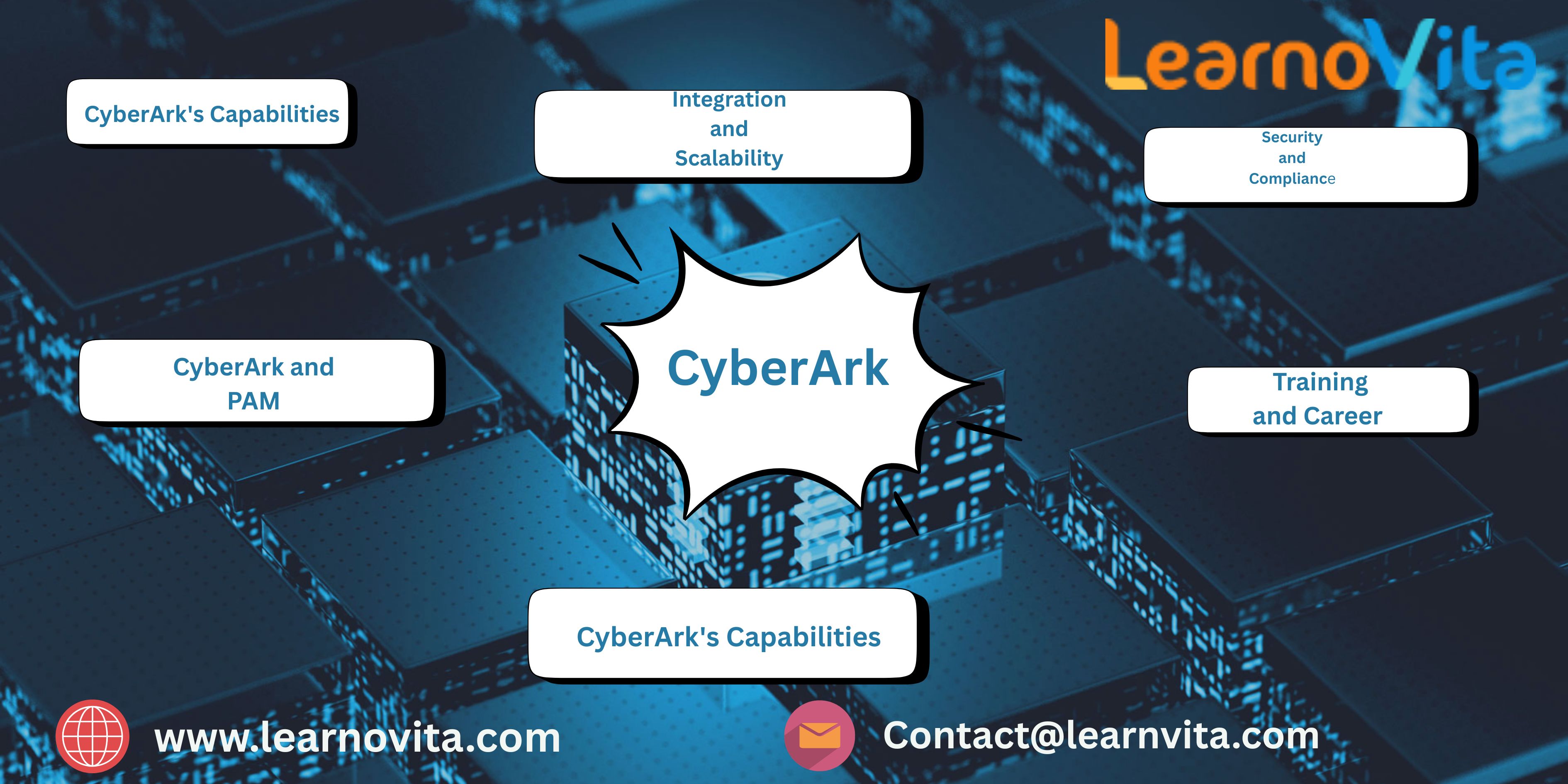CyberArk: The Cornerstone of Modern Privileged Access Security
In today’s rapidly evolving digital ecosystem, cybersecurity is no longer a secondary concern—it’s a fundamental necessity. One of the most critical areas in cybersecurity is protecting privileged accounts, which are often the target of sophisticated cyberattacks. Privileged accounts have the keys to access sensitive systems, confidential data, and administrative controls. A breach of these accounts can result in catastrophic consequences for any organization, from data loss to financial damage and regulatory violations. This is where CyberArk, a global leader in Privileged Access Management (PAM), steps in to offer a robust and intelligent solution.
Understanding Privileged Access and Its Risks
Privileged access refers to accounts that have elevated permissions to critical systems, applications, or data. These can include domain administrators, root users, database admins, and application service accounts. While necessary for daily operations, these accounts are also the prime targets for cybercriminals. The exploitation of privileged credentials is a common tactic in nearly all advanced attacks. From ransomware to insider threats, unauthorized access through privileged accounts often forms the gateway. Traditional security measures often fall short in detecting and managing privileged access risks. Manual processes, hardcoded credentials, and a lack of session visibility create significant vulnerabilities. Organizations must adopt a more centralized, automated, and intelligent system to secure privileged credentials effectively—this is where CyberArk proves invaluable.
How CyberArk Works: A Simplified Breakdown
CyberArk Training in Bangalore operates through a streamlined yet comprehensive approach to privileged access management. At its core, CyberArk automates the discovery, storage, and control of privileged credentials across the enterprise environment. It begins with Discovery, where CyberArk scans the network to detect all privileged accounts across servers, databases, applications, and endpoints. Once identified, these credentials are securely stored in an encrypted vault, known as the Digital Vault, which acts as an isolated repository inaccessible to unauthorized users. From there, CyberArk allows organizations to enforce policies governing who can access which resources, under what conditions, and for how long. One of CyberArk’s standout features is its Session Management capability. It records all privileged sessions in real time, offering full visibility into user activities. This is critical not only for security but also for compliance with regulatory standards like HIPAA, PCI-DSS, and GDPR. Moreover, CyberArk supports Credential Rotation, where passwords and secrets are automatically updated after each use, thereby minimizing the risk of credential theft. CyberArk also maintains detailed audit logs, capturing every access attempt and action performed using privileged credentials. These audit trails are essential for forensic investigations, compliance audits, and overall risk mitigation.

Key Components of the CyberArk Platform
CyberArk’s platform is built with several interlinked modules that provide comprehensive protection and control: Digital Vault: This is the secure repository where all privileged credentials are stored. The vault uses multi-layered encryption and is isolated from other systems to prevent unauthorized access. Password Vault Web Access (PVWA): A web-based interface that enables users to securely access and manage credentials without exposing them directly. Central Policy Manager (CPM): This component automates the enforcement of security policies and performs tasks like password rotation and validation based on organizational rules. Privileged Session Manager (PSM): Monitors and records all sessions where privileged access is used. It offers live session viewing and playback capabilities. Privileged Threat Analytics (PTA): A powerful analytics engine that leverages machine learning to detect suspicious behavior and potential insider threats in real time. These components together create a closed-loop system that protects, monitors, and audits privileged access across the enterprise.
CyberArk in DevOps and Cloud Environments
With the shift toward DevOps practices and cloud-native architectures, organizations are facing new types of security challenges. The speed and automation involved in continuous integration and continuous delivery (CI/CD) pipelines often lead to poor credential management practices, such as hardcoding secrets into source code or configuration files. Additionally, containerized environments like Docker and Kubernetes introduce short-lived, dynamic workloads that require on-the-fly credential access. CyberArk addresses these modern challenges with solutions tailored for DevOps and cloud security. CyberArk Secrets Manager provides a secure way to store and retrieve secrets dynamically for applications, containers, and microservices. This ensures that no credentials are exposed in source code or CI/CD pipelines. Furthermore, CyberArk offers Just-in-Time (JIT) access, which provisions temporary, time-bound access to critical resources. Once the task is completed, the access expires, reducing the attack surface. CyberArk also integrates seamlessly with tools like Jenkins, Ansible, Terraform, and Kubernetes, enabling security teams to embed privileged access controls directly into the development pipeline. Its multi-cloud support for AWS, Azure, and Google Cloud ensures consistent security policies across hybrid and cloud-native infrastructures.
Industry Adoption and Use Cases
CyberArk is not limited to one sector—it is deployed across a wide array of industries due to its adaptability and depth of functionality. In financial services, CyberArk protects sensitive customer data, banking transactions, and ensures compliance with regulations like SOX and FFIEC. In healthcare, it secures access to Electronic Health Records (EHRs), ensuring HIPAA compliance and preventing medical data breaches. Retail and e-commerce companies use CyberArk to secure point-of-sale systems and customer payment data, while manufacturers rely on it to protect industrial control systems (ICS) and connected IoT devices. Government and defense sectors leverage CyberArk to safeguard classified information and mission-critical systems, meeting the stringent cybersecurity requirements set by national regulations.
Benefits of CyberArk Implementation
The benefits of implementing CyberArk are numerous. First and foremost, it drastically reduces risk by eliminating hardcoded credentials and enforcing least privilege access. It enhances operational efficiency through automation, saving time and reducing the margin for human error. CyberArk also improves an organization’s security posture, enabling proactive threat detection through behavioral analytics. It supports compliance with international standards, simplifying audit preparation and documentation. Moreover, the CyberArk Online Course is built to scale, making it suitable for both small-to-medium businesses and large enterprises with complex IT environments.

Challenges and Considerations
While CyberArk offers immense value, it’s important to be aware of the challenges that may arise during implementation. The initial deployment can be complex, particularly in large organizations with legacy systems and fragmented account structures. CyberArk requires a well-thought-out deployment strategy and collaboration across security, IT, and operations teams. Cost can be another consideration, especially for small businesses. CyberArk is an enterprise-grade solution with pricing to match. However, the return on investment often justifies the cost when weighed against the potential consequences of a privileged access breach. User training and adoption are also key. CyberArk’s effectiveness depends on how well users understand and follow the implemented access workflows. Finally, integration with existing systems—especially proprietary or outdated platforms—may require custom development and additional resources.
Conclusion:
In the digital age, where cyber threats are evolving faster than ever, securing privileged access is not optional—it is a necessity. CyberArk offers a robust, scalable, and intelligent solution that empowers organizations to stay ahead of the curve. From on-premise environments to dynamic cloud infrastructures and DevOps pipelines, CyberArk provides the tools and technologies needed to protect your most sensitive assets. Organizations that invest in CyberArk not only strengthen their security defenses but also enable smoother operations, better compliance, and enhanced visibility into user behavior. While the implementation may require effort and investment, the long-term value it delivers is indisputable.
We are excited to announce the **launch of the Sharkbow Marketplace!** 🎉 Now you can:
- 🛍️ List and sell your products – Open your own store easily.
- 📦 Manage orders effortlessly – Track sales and communicate with buyers.
- 🚀 Reach thousands of buyers – Expand your business with ease.
Start selling today and grow your online business on Sharkbow! 🛒
Open Your Store 🚀 ✖🚀 What Can You Do on Sharkbow?
Sharkbow.com gives you endless possibilities! Explore these powerful features and start creating today:
- 📝 Create Posts – Share your thoughts with the world.
- 🎬 Create Reels – Short videos that capture big moments.
- 📺 Create Watch Videos – Upload long-form content for your audience.
- 📝 Write Blogs – Share stories, insights, and experiences.
- 🛍️ Sell Products – Launch and manage your online store.
- 📣 Create Pages – Build your brand, business, or project.
- 🎉 Create Events – Plan and promote your upcoming events.
- 👥 Create Groups – Connect and build communities.
- ⏳ Create Stories – Share 24-hour disappearing updates.
Join Sharkbow today and make the most out of these features! 🚀
Start Creating Now 🚀- Art
- Causes
- Crafts
- Dance
- Drinks
- Film
- Fitness
- Food
- Games
- Gardening
- Health
- Home
- Literature
- Music
- Networking
- Other
- Party
- Religion
- Shopping
- Sports
- Theater
- Wellness
